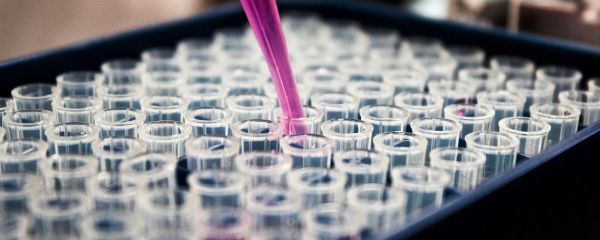
Laboratory Animal Sciences Species Specific Course Carnivores
About Laboratory Animal Science Carnivores
The Species-specific Laboratory Animal Science course Carnivores is intended for researchers who are going to plan and perform animal experiments using carnivores (dogs, cats and ferrets) (ex. Art. 9. Of the Dutch Act on animal experimentation or Wod). You need two certificates: the basic certificate from the introduction course AND a species-specific course.
Animal experiments should only be set up and carried out by experts. In all cases, harm to the well-being of the experimental animal must be reduced to the absolute minimum. After all, all animals ultimately have the same intrinsic value. This requires knowledge, expertise and a correct attitude towards laboratory animals. Utrecht University has been providing the course on Laboratory Animal Science since 1986, making it the longest-running and most frequently taught Laboratory Animal Science course in Europe. The course is recognized by the Dutch government. Since a couple of years, we also organize different species specific courses, which are (like the basic course) FELASA accredited (function A+B for the basic course PLUS a species specific course).
The Species-specific Laboratory Animal Science course Carnivores covers species-specific knowledge which is relevant when setting up and performing animal experiments using these species. Among other things, we discuss animal welfare, behaviour, husbandry and nutrition, and provide some basic practical experience when it comes to handling the animals and basic experimental techniques.
Additional information:
- This course is taught in English.
- Because you will work with animals during the course, we would like to remind you that it is wise to get vaccinated against tetanus.
- Courses will only proceed if there are sufficient participants.
Target group
This species specific Laboratory Animal Science course is intended for researchers who are going to plan and perform animal experiments using carnivores (dogs, cats and ferrets) (ex. Art. 9. Of the Dutch Act on animal experimentation or Wod). Please note: the course on Laboratory Animal Science is only part of the legal requirements for an ‘Article 9 officer’. In addition to obtaining a certificate from a recognized course in Laboratory Animal Science (a basic course plus a species-specific course), you must be scientifically trained (MSc level) in a member state of the European Union or the European Economic Area in a scientific discipline relevant to the work being undertaken.
To assess whether you meet the legal requirements to plan and perform animal experiments and to be registered as an Article 9 officer, please contact the Animal Welfare Body of your license holder. For more information regarding competency in animal experimentation, check out the website of the 3Rs Centre: https://www.uu.nl/en/organisation/3rs-centre/education-and-training and the Animal Welfare Body Utrecht: https://ivd-utrecht.nl/en/infocentre/qualified-and-competent
The learning outcomes of this course are in accordance with the [Education and Training Framework gerelateerd aan Directive EU/2010/63] (https://op.europa.eu/en/publication-detail/-/publication/fca9ae7f-2554-11e9-8d04-01aa75ed71a1/language-en ).
The following modules are covered:
Core modules:
- 3.1 Basic and appropriate biology - theory
- 4 Animal care, health and management
- 5 Recognition of pain, suffering and distress
- 6.1 Humane methods of killing - theory
Function specific modules (EU function A+B):
- 3.2 Basic and appropriate biology – skills
- 7 Minimally invasive procedures without anesthesia – theory
- 8 Minimally invasive procedures without anesthesia – skills
Task specific modules:
- 20 Anaesthesia for minor procedures
- 21 Advanced anesthesia for surgical and prolonged procedures - 22 Principles of surgery
Want to be the first to know when the registration link and new prices are available? Sign up for our interest list!
Admission Requirements:
This course is open to researchers and master’s students (in a biological, biomedical, or zootechnical field of study with sufficient knowledge of anatomy, physiology, and biological/biomedical subjects).
Certificate with FELASA logo
To receive a certificate with the FELASA logo, you must complete a multiple-choice test after completing the course. The test takes approximately half an hour. Upon successful completion of the test and the species-specific course, you will receive a certificate with the FELASA logo.
Certificate (without FELASA logo)
You will receive a certificate upon successful completion of the species-specific course. To obtain an Article 9 qualification, you need two certificates: the basic course and a species-specific course.
Payment and Cancellation
Payment
Mail ovp.vet@uu.nl for more information
Cancellation
No fees will be charged for cancellations 22 or more days before the start of the course.
For cancellations 7 to 21 days before the start of the course, 50% of the costs will be charged. For cancellations within 7 days before the start of the course or if you do not show up, the full amount will be charged.
Didn't receive a confirmation e-mail?
After registering, you will receive an e-mail from us with further details. Did you not receive an e-mail? Don’t forget to check your junk mail folder.
